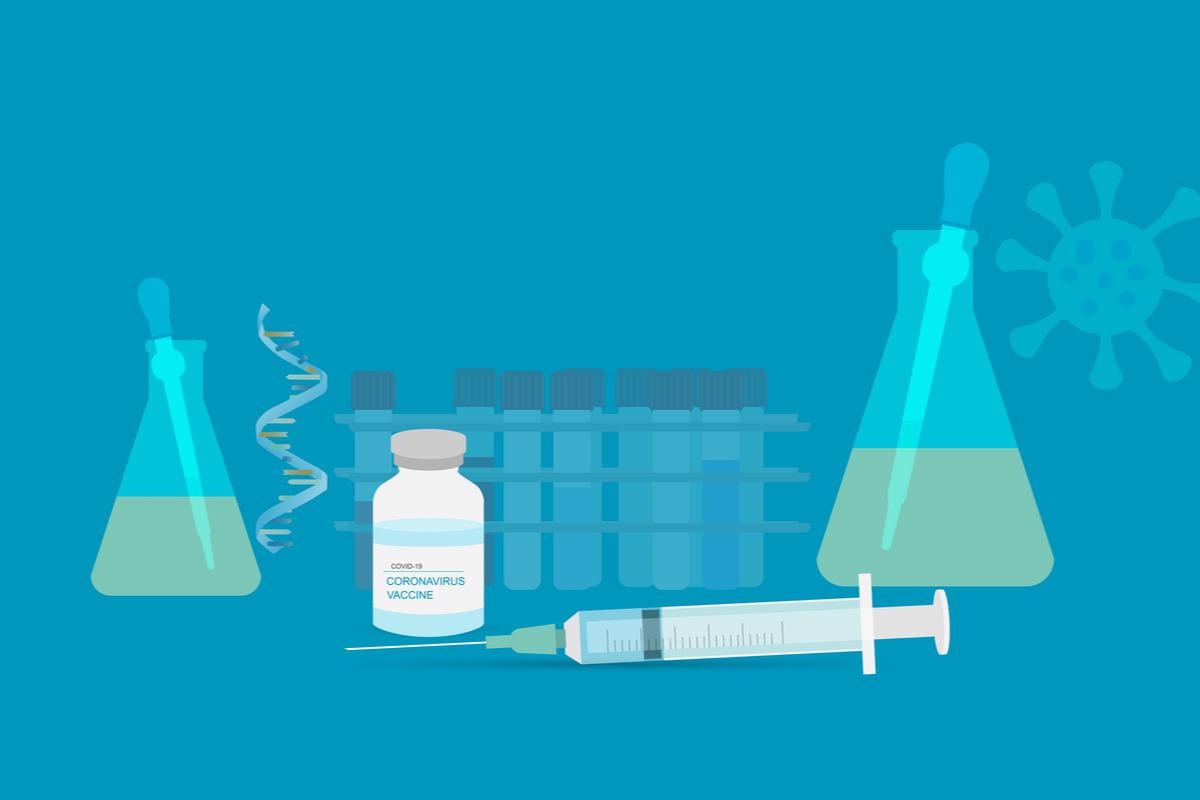In a recent study posted to the bioRxiv* preprint server, the researchers compared the efficiency of monovalent and bivalent messenger ribonucleic acid (mRNA) vaccines against the severe acute respiratory syndrome coronavirus 2 (SARS-CoV-2).
 Study: Low-dose bivalent mRNA vaccine is highly effective against different SARS-CoV-2 variants in a transgenic mouse model. Image Credit: Teeradej/Shutterstock
Study: Low-dose bivalent mRNA vaccine is highly effective against different SARS-CoV-2 variants in a transgenic mouse model. Image Credit: Teeradej/Shutterstock

 This news article was a review of a preliminary scientific report that had not undergone peer-review at the time of publication. Since its initial publication, the scientific report has now been peer reviewed and accepted for publication in a Scientific Journal. Links to the preliminary and peer-reviewed reports are available in the Sources section at the bottom of this article. View Sources
This news article was a review of a preliminary scientific report that had not undergone peer-review at the time of publication. Since its initial publication, the scientific report has now been peer reviewed and accepted for publication in a Scientific Journal. Links to the preliminary and peer-reviewed reports are available in the Sources section at the bottom of this article. View Sources
Coronavirus disease 2019 (COVID-19) vaccines have contributed significantly to curbing the morbidity and mortality caused by the pandemic. With the emergence of novel SARS-CoV-2 variants, developing newer and more efficacious vaccines and vaccine strategies is essential.
About the study
In the present study, the team developed unmodified mRNA vaccines, including CV2CoV.351, CV2CoV.617, and CV2CoV, that encoded the SARS-CoV-2 spike protein sequences from the SARS-CoV-2 Beta (B.1.351) and Delta (B.1.617.2) variants as well as the wildtype strain. The monovalent vaccine consisted of either CV2CoV.351, CV2CoV.617, and CV2CoV, and the bivalent vaccine consisted of CV2CoV.351 and CV2CoV.617.
The team injected K18-human angiotensin-converting enzyme 2 (ACE2) transgenic mice with either 20 µL of a low dose of the monovalent or the bivalent vaccines or sodium chloride (NaCl) on day 0 and day 28. These transgenic mice are known to have a human-like ACE2 receptor which served as the entry point for SARS-CoV-2.
The vaccinated mice were protected from SARS-CoV-2 exposure, while the mice injected with NaCl were challenged with the Beta and Delta variants on day 56. Oral swabs were obtained from all the study subjects on day 4, while lung, cerebrum, and cerebellum samples were collected on day 10. Furthermore, the team examined if lower concentrations of either monovalent or bivalent vaccines could stimulate lung parenchymal tissue-resident T cells.
Results
The study results showed that among the NaCl-injected mice exposed to SARS-CoV-2, all the Beta-exposed and 67% of the Delta-exposed mice succumbed to the infection. The team found no detectable amounts of SARS-CoV-2 genomic RNA or subgenomic RNA (sgRNA) in the oral swabs or the lung, cerebrum, and cerebellum samples in all bivalent-vaccinated Beta-challenged mice, except for one. This indicated that productive infection was significantly prevented in the infected mice.
However, the team noted that the prevention of SARS-CoV-2 replication by the monovalent vaccines in the upper respiratory tract (URT) was dependent on the virus exposed to the mice. The reduced viral load found in the conchae of the bivalent-vaccinated mice was equivalent to that in the matched monovalent-vaccinated mice after being exposed to Beta. However, the viral replication of the Delta variant was entirely prevented in all the vaccinated cohorts.
Furthermore, the team reported high levels of anti-receptor binding domain (RBD) total immunoglobulin levels in all the vaccinated mice. Also, the bivalent and the monovalent vaccines induced equally high levels of neutralizing antibodies in their respective Beta- and Delta-exposed mice. Overall, the levels of neutralizing antibodies elicited by the bivalent vaccines were statistically higher than that of the monovalent vaccines, irrespective of the variant.
Moreover, the lower concentrations of the monovalent and the bivalent vaccines induced potent SARS-CoV-2 spike protein-specific CD4+ and CD8+ responses as compared to the non-vaccinated mice. The vaccination also triggered the enrichment of interferon-gamma and granzyme-B in the lung parenchyma.
Conclusion
The study findings showed that the effective viral clearance of the SARS-CoV-2 Delta variant observed in the mice conchae necessitates the evaluation of vaccine effectiveness of bivalent vaccines as well as of vaccines with higher valencies. The researchers believe that mRNA vaccines can be further developed to adapt to circulating and emerging SARS-CoV-2 variants.

 This news article was a review of a preliminary scientific report that had not undergone peer-review at the time of publication. Since its initial publication, the scientific report has now been peer reviewed and accepted for publication in a Scientific Journal. Links to the preliminary and peer-reviewed reports are available in the Sources section at the bottom of this article. View Sources
This news article was a review of a preliminary scientific report that had not undergone peer-review at the time of publication. Since its initial publication, the scientific report has now been peer reviewed and accepted for publication in a Scientific Journal. Links to the preliminary and peer-reviewed reports are available in the Sources section at the bottom of this article. View Sources